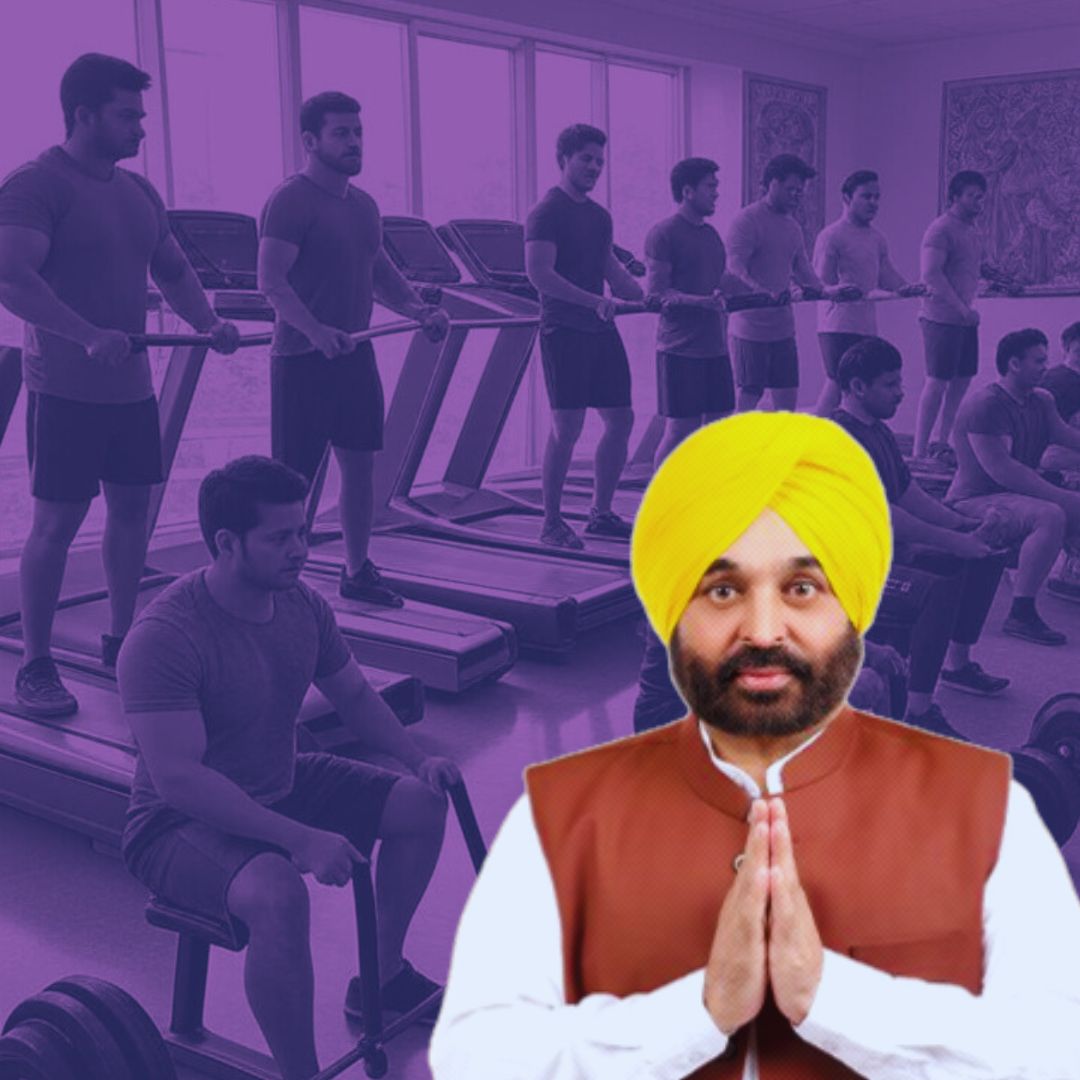The Punjab government has issued a comprehensive health advisory to address the rising cases of sudden cardiac arrests and deaths among gym-goers and sportspersons. Announced by Health Minister Dr Balbir Singh in Ludhiana, the advisory mandates pre-workout medical screenings, warm-up and cool-down routines, the use of certified supplements, and restrictions on energy drinks and steroids.
It also launches a state-wide initiative to train gym personnel and users in CPR (Cardiopulmonary Resuscitation) and Basic Life Support (BLS). This initiative is backed by a joint research study from Punjab Agricultural University (PAU), Guru Angad Dev Veterinary and Animal Sciences University (GADVASU), and Dayanand Medical College and Hospital (DMCH), under the state’s “Swasth Punjab – Surakshit Punjab” mission to ensure safe fitness practices among youth.
Health Advisory Details: Preventing Cardiac Risks in Fitness Spaces
The advisory responds to an alarming increase in sudden cardiac incidents during workouts and sports activities, often caused by undiagnosed medical conditions, unchecked use of supplements, and unhealthy lifestyle factors such as high-pressure living and poor diet. Dr Balbir Singh emphasized that these cardiac arrests are largely preventable and not random.
The guidelines require gyms and sports facilities to prominently display these safety instructions and prohibit uncertified supplements and energy drinks, which pose significant health risks. Furthermore, poor ventilation and indoor air quality in gyms have been identified as additional health risk factors contributing to these emergencies. The advisory stresses systematic warm-up and cool-down routines to prepare and relax the body, hydration, and avoidance of quick-result supplements without medical advice.
Scientific Consortium and Expert Involvement
This pivotal advisory is the result of collaboration among leading academic and medical institutions – PAU, GADVASU, and DMCH. Their joint study revealed that many victims of sudden cardiac arrests during exercise had not undergone any medical fitness screening and relied on unverified supplement sources. Experts from cardiology, nephrology, gastroenterology, and nutrition rigorously debated the complexities before consolidating the advisory.
Cardiologist Dr Bishav Mohan underlined that simple preventive measures such as respecting body limits, regular health check-ups, and proper hydration could drastically reduce such incidents. PAU Vice-Chancellor Satbir Singh Gosal called the advisory a “health capsule,” crafted from scientific insight and expert consultation. The advisory is to be implemented statewide, potentially serving as a model for other regions.
Emergency Response and Community Training
Recognizing that emergencies can still occur despite precautions, the Punjab Health Department has introduced a state-wide training programme for gym users, trainers, and young athletes in CPR and BLS. These life-saving skills are being disseminated directly within gyms and sports centres across Punjab to enable immediate and effective responses to cardiac events.
The focus on emergency readiness complements the preventive health measures, creating a holistic approach to fitness safety. The advisory also encourages ongoing public education and awareness to foster a culture of medical vigilance and safety in fitness environments.
The Logical Indian’s Perspective
The Logical Indian applauds the Punjab government’s thorough, science-driven response to a critical but often overlooked health issue among young fitness enthusiasts. By blending research, regulation, and education, this advisory not only protects lives but also champions responsible fitness practices without discouraging the pursuit of health and well-being.
The initiative embodies values of empathy, precaution, and community care in a growing fitness culture. Moving forward, The Logical Indian invites readers to consider how local communities, fitness centres, and policymakers can collaborate further to promote safe exercise habits and emergency preparedness, ensuring that physical fitness is a source of strength, not risk.










